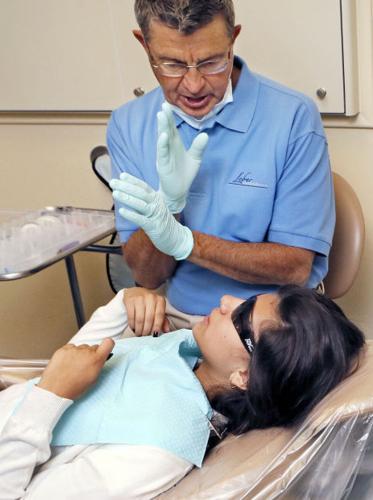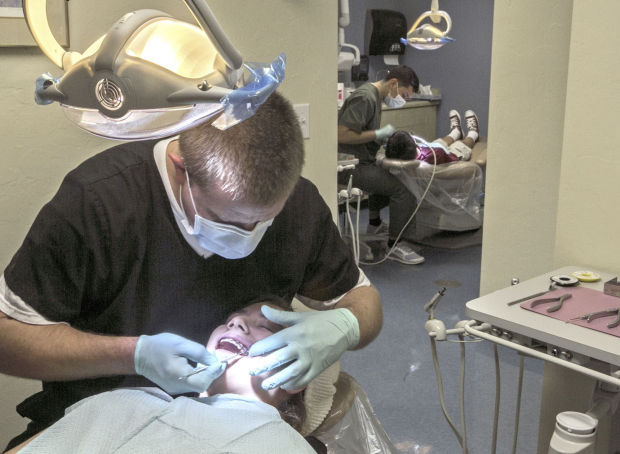When Flor Cristerna started at Amphitheater High School in August, she did it with a new smile.
Her previously crooked teeth are straight as a result of the braces her family never thought they’d be able to afford. They came through a low-cost program called Smiles Ahead, started by a Tucson father and son who are volunteer dentists at the local St. Elizabeth’s Health Center.
Without dental insurance, braces cost $4,000 to $6,000. Even when families do have coverage, the out-of-pocket share of fixing their children’s teeth can be prohibitive.
And for low-income families, Medicaid covers routine dental care but — except in a few severe cases — not braces or other corrective orthodontic devices.
Last year, Arizona's Medicaid program, which is called AHCCCS (the Arizona Healthcare Cost Containment System), spent $133.5 million on dental care for infants and children ages newborn through 17. Less than one half of 1 percent of pediatric dental spending — $369,843 — was on orthodontics.
Crooked teeth, overbites and underbites can affect self-esteem and can hinder speaking and chewing abilities, said Eric Leber who practices with his father, Larry Leber, at Leber Orthodontics.
The Lebers started Smiles Ahead two years ago because they wanted to do something to give back to the community.
The Lebers, along with help from Tucson orthodontist Dr. Michael Don, screened 60 kids last December and narrowed the field to 18. Kids must be between the ages of 10 and 16, have severely misaligned teeth, and must come from a family facing financial hardship. Through the program, families can get braces for their children for about $500 to $1,000.
To apply, each child had to write a brief essay explaining why braces would be important to him or her. Applicants also had to submit teacher reports showing continual improvement in math and English — subjects the Lebers see as keys to future economic success. Kids with good grades qualify for an additional $30-per-month discount on the cost of their braces.
During the summer months when school was out, the Lebers gave the kids an assignment to write about their teeth.
“Without this program my teeth would still be awful and I would probably sadly never get a great smile,” 14-year-old Alejandra Zarazua wrote in her essay. “I am so grateful and super happy that my mom found out about this program and that it not only offered braces but it offered an opening for a fun, new and amazing family!”
Leber said that by using grades as an incentive, the program helps kids ensure a better future for themselves — a bigger guarantee that those smiles will be put to good use.
“Some of the kids have been bullied,” Leber said. “This builds confidence.”
Flor Cristerna says her payoff has been big — she no longer covers her mouth when she smiles.
She’s considering a career in dentistry so she can help change people’s lives.





